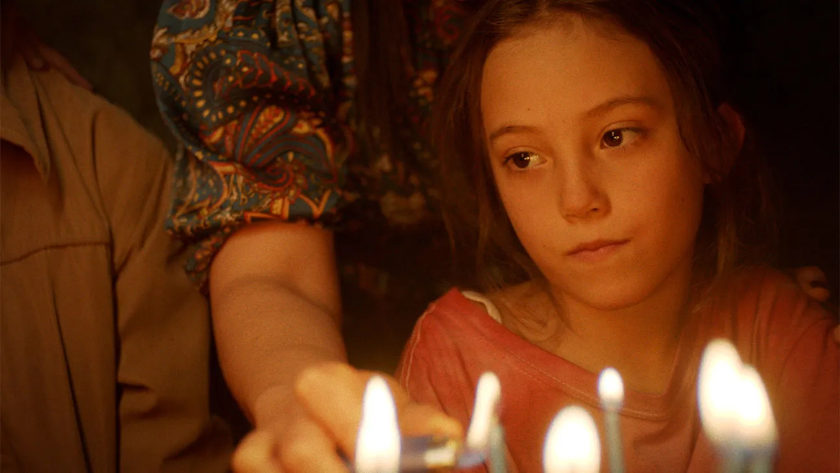Vassilis Kroustallis reviews the Mexican feature 'Totem ' by Lila Avilés.
Everything in Lila Avilés' soul-searching, investigating, and heartfelt but not heart-breaking film 'Totem' seems destined to say that luck and chance can work magic -for the good or the bad. In her second feature (after her 2018 'The Chambermaid' debut), she employs a menagerie of female family characters to support and celebrate the birthday of the dying young artist Tona (Mateo Garcia). Tona has cancer (like his mother before him, while his father is a throat cancer survivor), and his 7-year-old daughter Sol (Naíma Sentíes) needs to unveil the mysteries of life and death. Failing to do so, she settles for a big family party (perhaps Tona's last and his farewell) prepared by both her mom (Iazua Larios) and her two aunts, Nuria (Montserrat Marañon) and Alejandra (Marisol Gasé), the hosts of the birthday party.
After a brief toilet bonding scene between mother and daughter, the whole action transfers to Tona's place, which has become a nursing home and a way of living for everyone. The inquisitive Sol acts as our intro to the habitat (in a 4:3 aspect ratio, which puts us into participatory mode as recorders of an event), but the little girl won't dominate the film. We rarely see the action in Sol's eyes (apart from her voice app commands to her smartphone 'when the world will end'). 'Totem' is mostly an ensemble piece that assembles bits and pieces that make the everyday tension look magnified under the stress of keeping everyone with a happy face. For instance, Nuria wonders about the birthday cake preparation -while her real worry is that they cannot do enough to help her brother (who has denied chemotherapy treatment). Tona’s father Roberto (Alberto Amador) is both a psychotherapist and an obnoxious presence in the party preparations. The lack of heated arguing (scenes flow naturally in that respect) gives its place to the perfectly set ambient atmosphere the film wants to embrace. The furniture, from the paintings to pots and pans, has a definite role to play -while being part of a shot. House walls can be alive as well, in a seance-like ritual to get rid of the house's bad spirits.
Tona fails to appear in the first part of the film. His screen absence gives more space for his relatives to express their worries; yet, the small-scale worries about the party preparations seem too easy to decipher and too thematically closed to move the narrative forward. The event itself (in the film's second part) is an amalgam of flamboyance, well-calculated moments of genuine sadness, and sheer delight in the clown opera number. The whole setting also looks like an unintentional funeral and remembrance with Tona present, a black comedy element that the film never intentionally invites. What mostly registers are the less populated scenes: Tona and his partner and daughter (the only film scene they feature together), the two sisters who are arguing about boozing and who are taking control of which part, the father who needs to keep the pigeons away from his bonsai tree. The above scenes, set in a warm light nevertheless, convey more meaning than the whole edifice of a party to make happy.
Lila Avilés is confident in describing the everyday micro situations that reveal a lot of heavy baggage underneath the surface. The small totems we hold dear sometimes seem to collapse during the film's running time, and 'Totem' is perfectly capable of accomplishing that. Yet, like the blindfolded spirit chaser professional in the film, the relatively finely-paced film still won't reveal much of its secrets -and will rely on our imagination and guessing (as what the characters at some point do) to fill in the gaps. 'Totem' is confrontationally direct without a doubt, clearly empathetic and relevant, but still an intentionally emotionally opaque film.
'Totem' screened at the 10th Riga International Film Festival, 12-22 October 2023.
Vassilis Kroustallis

